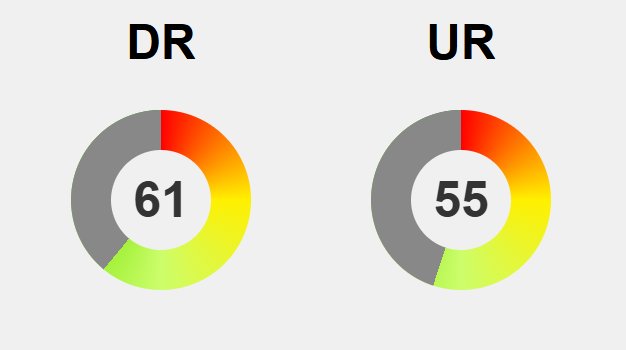Discover the extraordinary story of Joan of Arc, a young woman whose unwavering faith and moral clarity defied societal norms to lead armies and inspire a fractured nation. Her visions and divine messages fueled her daring decisions and resilient spirit, transforming her into a symbol of divine guidance amid chaos and war. But what lies behind her remarkable rise and tragic fall? Her leadership was rooted in a higher purpose, challenging traditional gender roles and demonstrating that true authority stems from moral conviction and spiritual purpose. As she united a divided France and reshaped perceptions of power, her legacy endures—an inspiring testament to faith-driven leadership, resilience, and the courage to pursue higher ideals against all odds. Could her story reveal the secrets to inspiring collective hope and lasting change through unwavering belief and moral courage?
Unwavering Faith and Bold Leadership: The Joan of Arc Story
Joan of Arc is one of history’s most compelling figures, not just for her military achievements but for her remarkable leadership rooted in unwavering faith. Her story stands out because she challenged societal norms of her time, rising from a humble background to lead armies and inspire a nation. Her leadership was driven by visions and divine voices she believed came from saints and angels, providing her with a sense of higher purpose that went beyond the ordinary. This blend of spiritual conviction and bold action made her a symbol of divine guidance amid a period of war and chaos.
Living in 15th-century France, Joan’s rise defied expectations. Society expected women to focus on domestic roles, yet her unwavering belief in her divine calling pushed her into the battlefield. Her visions, which she described as clear and commanding, served as a moral compass and a source of confidence. Her faith wasn’t passive; it was a powerful force that gave her the courage to lead troops and rally a fractured nation around a shared purpose. Her resilience and moral clarity became her greatest assets, inspiring those who followed her example.
Joan’s leadership extended beyond military strategy. Her ability to unite people under the banner of divine purpose transformed her into a beacon of hope. Her unwavering commitment to her visions and her willingness to act boldly, even in the face of skepticism and danger, showcased a level of moral courage that transcended conventional authority. Her faith made her a vessel of divine will, earning trust and devotion among her followers. This spiritual conviction was central to her enduring impact, elevating her as a true visionary hero.
Her story reveals that genuine authority often stems from moral conviction and a clear sense of higher purpose. Joan saw herself as a vessel for divine guidance, which allowed her to remain resolute amid chaos. Her ability to rally others around her divine mission highlights how faith can shape leadership that challenges societal norms and redefines what it means to lead. Her life reminds us that authentic leadership is rooted in moral clarity and unwavering purpose, inspiring collective action even in the darkest times.
This unwavering faith didn’t just bolster her resilience; it shaped her entire approach to leadership. Her visions and divine messages gave her the confidence to take risks others would avoid, turning seemingly impossible situations into turning points for her cause. Her example demonstrates that leadership fueled by higher ideals can inspire collective effort and sustain hope when everything seems lost. Her story continues to serve as a reminder of the transformative power of faith and purpose in leadership.
From her early visions to her ultimate sacrifice, Joan’s leadership exemplifies the extraordinary potential of faith-driven action. Her unwavering belief in her divine mission made her a moral and spiritual leader whose influence endures today. Her life invites us to reflect on how our own convictions and higher purpose can inspire us to lead with authenticity, resilience, and courage—qualities capable of challenging norms and igniting lasting change.
Context of Chaos: France During Joan’s Time
During Joan of Arc’s lifetime, France was caught in the chaos of the Hundred Years’ War, a protracted and brutal conflict with England that tore the country apart. Society was deeply hierarchical, with strict divisions between nobility and commoners, and expectations for women were limited to domestic roles. Women were rarely seen in leadership or military positions, making Joan’s rise as a military leader all the more extraordinary and a direct challenge to entrenched societal norms.
Culturally, obedience, piety, and loyalty to tradition shaped daily life. The Church’s influence was pervasive, guiding how people understood divine authority and morality. Society expected women to focus on marriage and family, not public service or warfare. Against this backdrop, Joan’s visions and divine calling stood out sharply—they defied conventional expectations and stirred both suspicion and admiration among her contemporaries.
Politically, France was fractured. Different regions supported competing claimants to the throne, leaving the nation in disarray. King Charles VII’s authority was weak and contested, with no clear central power. Joan’s divine voices, which she believed came from saints and angels, gave her a sense of legitimacy that contrasted sharply with the fragmented political landscape. Her perceived divine mission became a rallying point for those longing for hope and renewal amid chaos.
Born around 1412 in a small village in northeastern France, Joan’s early life was steeped in religious faith and a strong sense of purpose. By her early teens, she experienced visions and heard voices she attributed to saints, which instructed her to support Charles VII and help France regain its independence. These mystical experiences, coupled with her unwavering conviction, gave her the confidence to challenge societal expectations and pursue her divine mission, setting her on a path that would change history.
Her impact on the course of the war was immediate. Her role in lifting the siege of Orléans in 1429 shifted momentum in favor of France. Her presence boosted morale and inspired hope during a time of despair. Beyond military victories, she helped crown Charles VII as king, unifying a fractured nation around a renewed sense of purpose. Her story exemplifies how faith and divine inspiration can reshape politics and society in profound ways.
Secrets of a Visionary Leader: Uncovering Joan’s Qualities
Joan of Arc’s leadership was rooted in a rare combination of unwavering faith, moral clarity, and resilience that set her apart from conventional military figures. Her deep conviction in divine guidance gave her the confidence to make bold, often unconventional decisions, even when others doubted her or danger loomed. She saw herself as a vessel for higher powers, and this belief fueled her actions, inspiring troops and civilians alike to follow her lead with trust and devotion. Her trust in her visions allowed her to stay focused amid chaos, transforming personal faith into a powerful source of authority on the battlefield.
What truly made Joan inspiring was her ability to rally others around a shared sense of destiny rooted in divine purpose. She communicated her vision with unwavering conviction, compelling her followers to believe in the higher cause she championed. Her leadership was more than military strategy; it was about creating collective hope that transcended fear and despair. Her presence was magnetic—not because of rank or experience, but because her authentic, resolute belief that she was fulfilling a sacred mission resonated deeply with those around her.
Joan challenged societal norms at every turn. As a young woman leading armies in a male-dominated world, she defied expectations that women should stay in the background or focus solely on domestic roles. Her example proved that true authority springs from spiritual clarity and moral courage, not gender or status. By breaking these stereotypes, she demonstrated that leadership rooted in faith and purpose could reshape perceptions of what women are capable of achieving, inspiring generations to come.
Her resilience in the face of skepticism and opposition highlights her extraordinary strength. Joan endured physical threats, political manipulation, and widespread doubt, yet she remained committed to her divine visions and mission. This unwavering dedication not only inspired her followers but also reinforced her role as a moral leader who prioritized integrity over personal safety. Her ability to stay resolute amid adversity showed that genuine faith, when genuinely held, becomes a formidable force capable of overcoming even the most daunting obstacles.
Joan’s visionary heroism lay in her ability to see beyond immediate struggles toward a higher destiny. Her clarity of purpose motivated her to take risks that others hesitated to consider, turning her visions into tangible results. Her example reveals that leadership fueled by higher ideals can inspire collective effort and hope, even in the darkest moments. Her life demonstrates how a steadfast belief in a higher purpose can elevate leadership from mere strategy to a transformative force capable of inspiring lasting change.
Her unwavering commitment to her divine mission continues to inspire modern leaders seeking purpose-driven guidance. For those interested in exploring more about how faith and vision can transform leadership, reading about visionary leadership offers valuable insights into harnessing higher ideals for impactful change.
Living Her Principles: Applying Joan’s Faith-Driven Leadership
To incorporate Joan of Arc’s principles of faith-based leadership into your own life or organization, start by clarifying your core purpose rooted in your deepest values. When your actions are aligned with higher ideals, your leadership becomes authentic and inspiring, guiding others through clarity and conviction. Knowing what truly matters provides a strong foundation for making bold decisions, even amid uncertainty or adversity. This sense of purpose fuels resilience and keeps you focused on meaningful goals beyond immediate challenges.
Resilience is essential in maintaining a faith-driven approach. Commit to your beliefs consistently, especially when faced with setbacks or doubts. Regular reflection and mindfulness help reinforce your clarity and remind you of your higher purpose. When challenges arise, viewing them as opportunities to deepen your trust in your vision can transform obstacles into catalysts for growth. Staying grounded in your convictions allows you to persevere with confidence, inspiring others to do the same.
Authentic belief fuels your capacity to inspire others. Demonstrate your commitment through transparent actions and sincere communication. When your team or community sees that your leadership is rooted in moral integrity and genuine purpose, they are more likely to follow with confidence. Cultivating a culture that values shared values and higher ideals encourages collective resilience and motivation, creating a unified drive toward a common goal. Lead by example, showing unwavering dedication to your cause.
Acting boldly in line with your higher calling is crucial. Courage doesn’t mean the absence of fear; it means choosing to move forward despite it. When you stand firm in your purpose, you set a powerful example that challenges societal norms and pushes beyond perceived limits. This willingness to take risks based on higher ideals can inspire others to embrace change and pursue collective aspirations with renewed vigor.
Avoid acting blindly or without reflection. Seek counsel from trusted allies and regularly reassess your decisions to maintain humility and integrity. This balance between faith and critical thinking keeps your leadership genuine and effective, preventing reckless actions that could undermine trust. Reaffirm your purpose often, especially when faced with setbacks, viewing difficulties as opportunities to strengthen your resolve.
Fostering resilience also involves surrounding yourself with supportive people who share your values. Their encouragement can bolster your confidence and keep your resolve strong during tough times. Leading with unwavering belief turns challenges into opportunities for growth, inspiring those around you to pursue higher ideals with courage and conviction. By embodying these principles, your leadership can create meaningful change rooted in faith, purpose, and resilience.
Legacy of Courage: Joan’s Enduring Impact on Society
Joan of Arc’s legacy extends far beyond her lifetime, shaping ideas of leadership, faith, and courage that continue to inspire today. Her unwavering belief in divine guidance challenged societal norms and demonstrated that conviction rooted in higher purpose can ignite profound change. Her story remains a powerful reminder that moral clarity and resilience can elevate a person’s influence, encouraging others to stand firm in their beliefs despite opposition. Through her example, she showed that true power comes from inner conviction rather than titles or status, setting a precedent for authentic leadership driven by purpose.
Her ability to inspire and unite people through unwavering faith set a lasting standard for moral courage. Joan’s leadership proved that standing for higher ideals—despite societal expectations—can reshape perceptions of authority, especially for women and marginalized groups. Her life continues to encourage individuals to pursue their convictions with resilience and integrity, emphasizing that leadership rooted in genuine belief has the power to create enduring societal impact. Her story reminds us that lasting change often begins with inner strength and unwavering purpose.
Throughout history, Joan’s resilience in the face of danger, political manipulation, and widespread doubt underscores the transformative power of faith. Her unwavering commitment to her divine mission demonstrates that true leadership requires inner strength and moral clarity—qualities that remain essential today. Her example teaches that persistent belief and moral integrity can overcome even the most daunting obstacles, leaving a legacy of hope, perseverance, and inspiration that persists across generations.
Her visions and divine calling serve as symbols of hope and perseverance, demonstrating that faith-based leadership can unite communities and inspire collective action. By acting on her convictions, Joan helped reshape perceptions of authority, particularly for women. Her influence challenges us to trust our higher ideals and lead with authenticity, resilience, and purpose. Her enduring legacy continues to inspire new generations to stand for what they believe in and to pursue meaningful change with unwavering courage.
In the end, Joan of Arc’s story reminds us that authentic leadership is about more than personal ambition—it’s about embodying higher values and inspiring others to do the same. Her life exemplifies how faith and resilience can forge a lasting legacy that transcends time, shaping the way we view courage, conviction, and the power of unwavering purpose. Her example encourages us all to lead with integrity, to believe in the transformative potential of our convictions, and to stand resilient in pursuit of a higher good.













